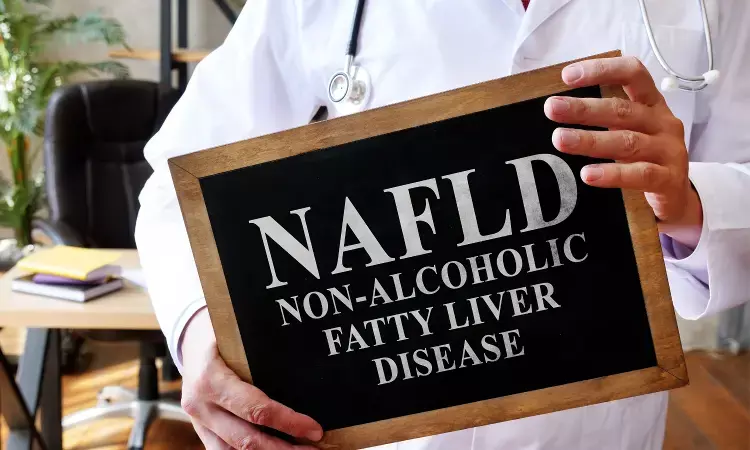- Home
- Medical news & Guidelines
- Anesthesiology
- Cardiology and CTVS
- Critical Care
- Dentistry
- Dermatology
- Diabetes and Endocrinology
- ENT
- Gastroenterology
- Medicine
- Nephrology
- Neurology
- Obstretics-Gynaecology
- Oncology
- Ophthalmology
- Orthopaedics
- Pediatrics-Neonatology
- Psychiatry
- Pulmonology
- Radiology
- Surgery
- Urology
- Laboratory Medicine
- Diet
- Nursing
- Paramedical
- Physiotherapy
- Health news
- Fact Check
- Bone Health Fact Check
- Brain Health Fact Check
- Cancer Related Fact Check
- Child Care Fact Check
- Dental and oral health fact check
- Diabetes and metabolic health fact check
- Diet and Nutrition Fact Check
- Eye and ENT Care Fact Check
- Fitness fact check
- Gut health fact check
- Heart health fact check
- Kidney health fact check
- Medical education fact check
- Men's health fact check
- Respiratory fact check
- Skin and hair care fact check
- Vaccine and Immunization fact check
- Women's health fact check
- AYUSH
- State News
- Andaman and Nicobar Islands
- Andhra Pradesh
- Arunachal Pradesh
- Assam
- Bihar
- Chandigarh
- Chattisgarh
- Dadra and Nagar Haveli
- Daman and Diu
- Delhi
- Goa
- Gujarat
- Haryana
- Himachal Pradesh
- Jammu & Kashmir
- Jharkhand
- Karnataka
- Kerala
- Ladakh
- Lakshadweep
- Madhya Pradesh
- Maharashtra
- Manipur
- Meghalaya
- Mizoram
- Nagaland
- Odisha
- Puducherry
- Punjab
- Rajasthan
- Sikkim
- Tamil Nadu
- Telangana
- Tripura
- Uttar Pradesh
- Uttrakhand
- West Bengal
- Medical Education
- Industry
Kisspeptin: A new drug for treatment of NAFLD

Globally, NAFLD is the most common form of chronic liver disease that affects children and adults and is linked to the rise in obesity and Type 2 diabetes.
Researchers have found in a new study that modified version of the naturally occurring hormone kisspeptin can be used to treat non-alcoholic fatty liver disease (NAFLD). Kisspeptin is a hormone that triggers puberty and controls fertility in humans.
The research has been published in the Journal of Clinical Investigation.
The study provides powerful evidence that a modified version of the naturally occurring hormone kisspeptin can be used to treat non-alcoholic fatty liver disease (NAFLD).
NAFLD is known as a "silent" disease because it starts off with few or no symptoms. It begins with the accumulation of fat in the liver, resulting in a condition known as 'fatty liver'. As the disease worsens, the liver becomes inflamed resulting in non-alcoholic steatohepatitis (NASH). This is followed by fibrosis and cirrhosis, where the liver becomes scarred and irreversibly damaged. A subset of NASH patients with cirrhosis will also develop liver cancer. Currently, there are no approved therapeutics to treat NASH.
Study lead investigator, Moshmi Bhattacharya, an associate professor in the Department of Medicine at the Rutgers Robert Wood Johnson Medical School, has spent over 15 years studying kisspeptin in health and disease. Kisspeptin, encoded by the KISS1 gene, was discovered in Hershey, Pa. and named for the iconic Hershey chocolate "kisses." In addition to playing key roles in pubertal development and maintaining reproductive function, kisspeptin has also been linked to appetite and sexual attraction.
Bhattacharya along with co-author Andy Babwah, an associate professor in pediatrics at Rutgers Robert Wood Johnson Medical School, initiated this study to decipher the roles of kisspeptin in the liver, under healthy and obese conditions. The study's first author, Stephania Guzman, is a Ph.D. candidate in Rutgers Molecular Biosciences Graduate Program. This collaborative study also included researchers led by Waljit Dhillo at the Imperial College London, U.K.
The researchers fed mice a high-fat, high-sugar 'Western' diet to induce obesity and NAFLD. The study showed that kisspeptin given to these mice protected them from the development of fatty liver, NASH and fibrosis. Kisspeptin works by binding its receptor, a protein called KISS1R. The study also showed that when KISS1R is deleted from liver cells, kisspeptin cannot function and mice on western diet develop fatty liver. These experiments uncover a powerful relationship between kisspeptin and the reduction of liver fat and fibrosis.
For further information, visit here:
Dr Kamal Kant Kohli-MBBS, DTCD- a chest specialist with more than 30 years of practice and a flair for writing clinical articles, Dr Kamal Kant Kohli joined Medical Dialogues as a Chief Editor of Medical News. Besides writing articles, as an editor, he proofreads and verifies all the medical content published on Medical Dialogues including those coming from journals, studies,medical conferences,guidelines etc. Email: drkohli@medicaldialogues.in. Contact no. 011-43720751


